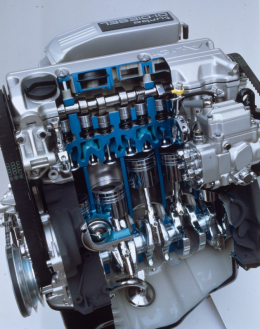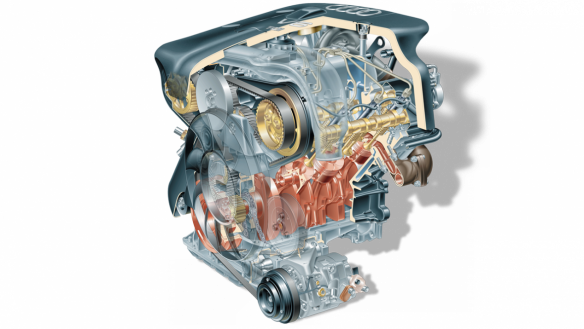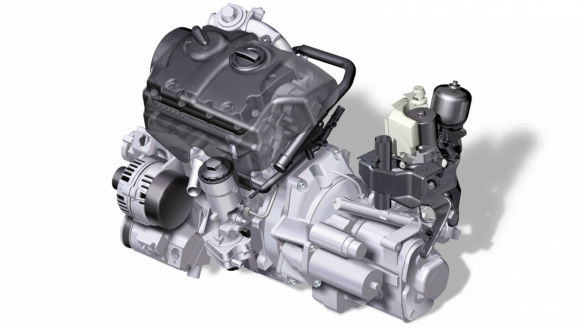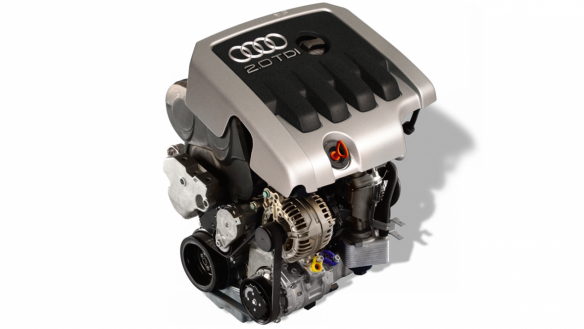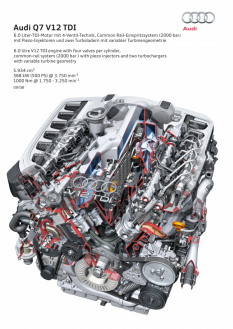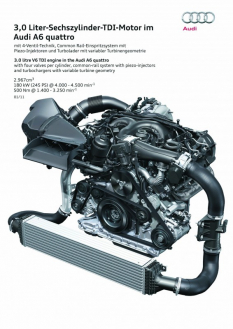TDI principle
The TDI used in production passenger cars is one of Audi’s groundbreaking innovations. Development of the engine began in the late 1970s, headed by the then Member of the Board of Management for Technical Development Dr. Ferdinand Piëch. In 1989, the direct-injection turbocharged diesel engine with fully electronic control celebrated its premiere in the Audi 100. The 2.5-liter five-cylinder engine set new standards with a power output of 88 kW (120 hp), a peak torque of 265 Nm (195.45 lb-ft) and excellent fuel efficiency. Far superior to all earlier engine concepts, it marked the beginning of a veritable boom in the new technology.
In the 20 years that followed, Audi produced over five million TDI engines and continued to systematically develop the principle. Today the TDI is one of the most successful efficiency technologies in the world. Since its market debut, ongoing advances have nearly doubled its power output and increased its torque by 70 percent with respect to engine capacity. During the same period, its emissions have fallen to approximately one-tenth of their original levels. Audi offers a wide range of TDI engines with four, six, eight and twelve cylinders. Each one combines powerful low-end torque, high performance, smooth operation and exemplary efficiency. The TDI embodies a modern, smart style of sportiness and sustainability.
Status: 2011
